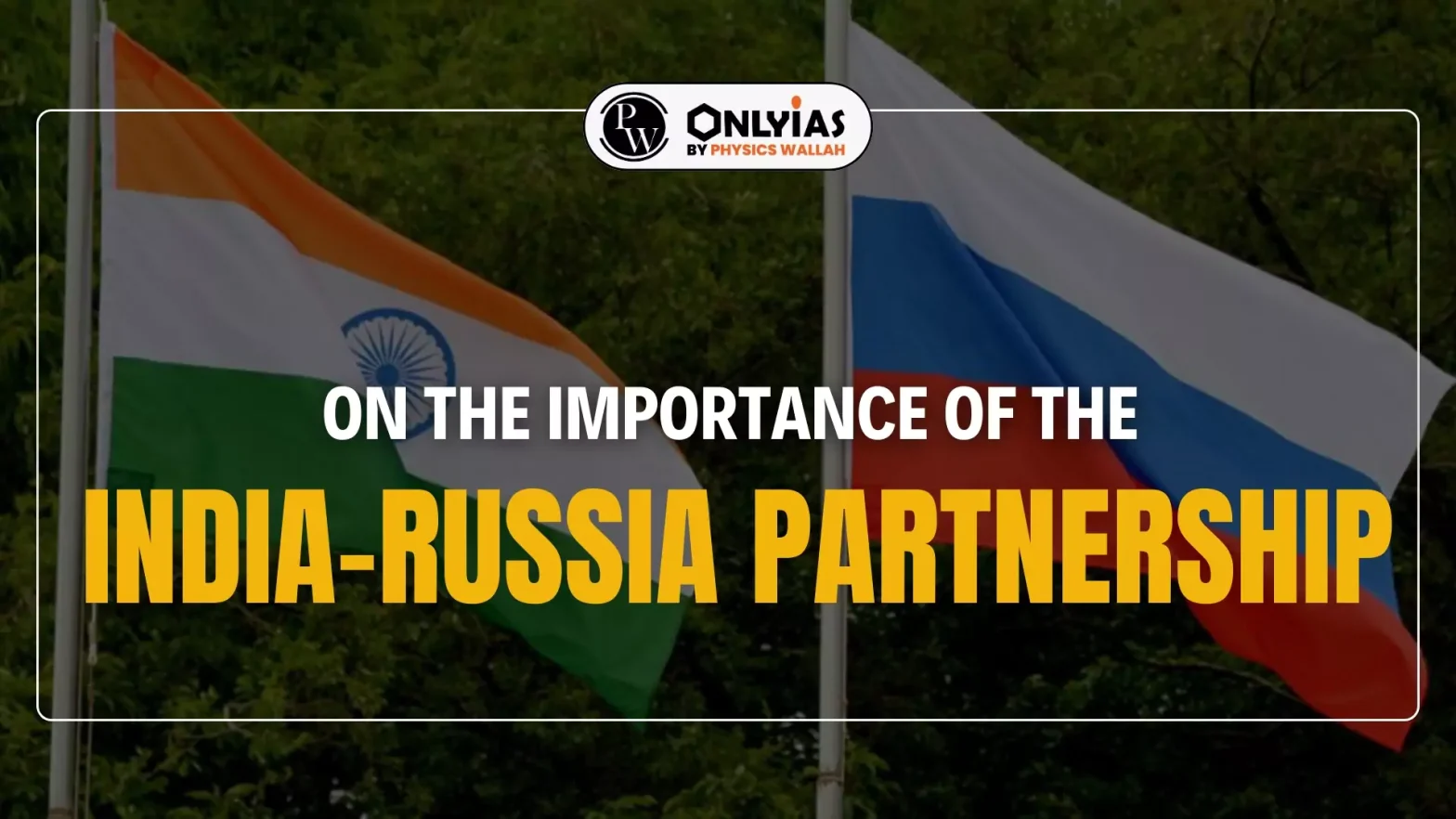With Russia his first choice for a bilateral visit in his third tenure PM Modi breaks a tradition that Indian Prime Ministers travel to neighbouring countries on their first stand-alone visits in a tenure, indicating the importance of the India-Russia partnership.
| Relevancy for Prelims: India Russia Trade Relations, Discussion on Bilateral Issue , Russia Ukraine War, PM Modi’s Visit etc.
Relevancy for Mains: Significance of PM Modi’s Visit, Concerns, Economic Impact During Russia Ukraine War , Russia Ukraine War: Impacts on India , Strong Geopolitical Message , etc. |
Significance of PM Modi’s Visit
- First Visit Since Ukraine War: 22nd India-Russia Annual Summit is the first Modi-Putin meet since the Ukraine war.
- 21st summit was in Delhi in December 2021, just before Russian President Vladimir Putin launched “special operations” on Ukraine.
- SCO summit in Uzbekistan: Since then, the two leaders have met just once, at the SCO summit in Uzbekistan
- Mr. Modi had stated that this was not the “era of war”.
Enroll now for UPSC Online Classes
Discussion on Bilateral Issue
Major Concerns in India-Russia Relations:
- Russia’s growing dependence on China: Russia’s growing dependence on China is also a concern for India, given tensions over the LAC.
- Fallout on defense deliveries: There are concerns about the fallout on defence deliveries and spares from Russia.
- Sanction from West:
- Payment Issues: Russian exporters taking rupee payments are reluctant to use the local currency in Vostro accounts to invest in equity and bond markets in India as the US dollar remains the most preferred currency
- Indian recruitments by the Russian army is another issue
Economic Impact During Russia Ukraine War
- Global Inflation in Food and Energy Markets: The war has disrupted global supply chains, particularly for wheat, oil, and gas, contributing to global inflation and supply chain challenges.
- Sanctions and Economic Disruptions: Sanctions against Russia and the damage to Ukraine’s infrastructure have further strained global economic stability.
- Loss to Ukraine: Ukraine’s economic output is now at a fraction of its pre-war levels. In the first year of the conflict, the country lost 30-35% of GDP leading to largest recession in Ukraine.
- Its GDP is projected to grow in 2023, if only by 0.5%.
- Poverty in Ukraine has soared from 5.5% of the population to 24.2% in 2022, according to the World Bank, pushing 7.1 million more people into poverty.
- Food Security: Ukraine and Russia were the biggest producers in agriculture and food globally. War between these nations has caused issues of food security globally.
- Loss to Russia: Russia’s economy contracted by 1.2% last year and €300 billion of Russian Central Bank reserves are blocked in the EU, other G7 countries.
- Around €20 billion of assets of more than 1,500 sanctioned persons and entities have been frozen.
Russia Ukraine War: Impacts on India
- Shortages of food, fuel and fertilizers: India has been worried about its fallout on defence deliveries and spares from Russia.
- While an attempt to “Make in India” has made headway (Russian assault rifles and the India-Russia BrahMos missile), concerns over the reliability of supplies and the payments issue will need discussion.
- India’s Balanced Relations: Indian policymakers walked on a diplomatic tightrope in balancing the relationship with the West and Russia. They did not join the chorus of condemnation of Russia which paid dividends while evacuating students from Ukraine.
- Access to Russian Crude Oil: India’s practical positions highlighting national interest ensured availability of Russian crude oil and helped contain price shocks.
- Growing interest in the Indo-Pacific and the Quad: There has been a growing pivot towards focus on Indi-Pacific security. This has put India in a strategic position to be a “Net Security Provider”.
- Strengthening China-Russia Relations: Closer Russia-China relations becomes a new challenge for Indian diplomacy.
|
India’s Balancing act amidst West’s Isolation of Russia
- West Isolating Russia: Contrasting with the NATO summit in Washington hosted by U.S. President Biden, which aims to highlight Russia’s isolation with leaders from NATO, Ukraine, and the Indo-Pacific.
- India Striking Balance: While Biden focuses on Western unity, Modi has balanced relations by participating in the G-7 summit, meeting Ukrainian President Zelenskyy, and maintaining India’s traditional ties with Russia.
- This balance is shown by India’s refusal to condemn Russia at the UN and continued engagements with Russia through groups like the SCO, BRICS, and G-20.
Check Out UPSC NCERT Textbooks From PW Store
Conclusion
Prime Minister Modi’s visit to Russia will be a focal point of how India leverages its multi-polar and non-aligned stance to foster dialogue and diplomacy, potentially contributing to resolving the Russia-Ukraine conflict.
![]() 8 Jul 2024
8 Jul 2024

